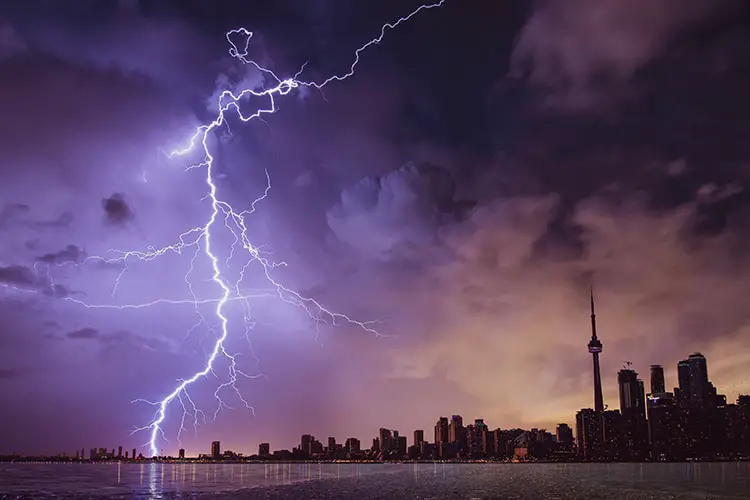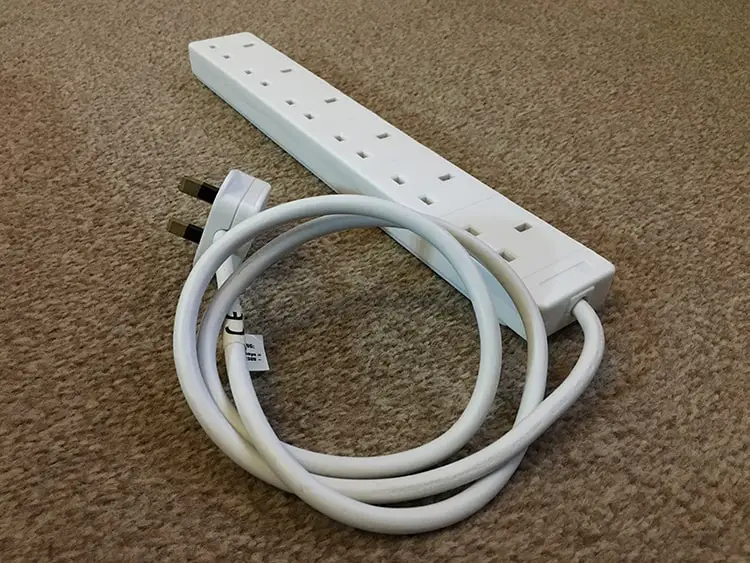Affiliate Disclosure: As an Amazon Associate I earn from qualifying purchases.
Available plug sockets can be seen as a luxury in some homes that have many devices plugged in at all times, so will powerline adapters work through extension leads, and is it safe?
Powerline adapters can work when plugged into an extension leads, but they will not perform as well as if they were plugged directly into a mains power outlet. Some extension leads with filtering built-in can block the powerline signal altogether, though.
In this article, we’ll look at the different types of extension leads and why only some of them will work with powerline adapters, whether it is even safe to be using adapters with extension leads, and how using extension leads can have an impact on the performance of a powerline network.
What Is an Anti-Surge Extension Lead?
Extension leads generally fall into one of two categories: anti-surge or non-anti-surge.
Anti-surge or surge protected extension leads are designed to protect the devices you plug into them from surges which have the potential to damage them or even fry them completely. They help to absorb the excess voltage and can extend the lifespan of your devices.
Surges occur when the amount of voltage on the line temporarily increases and can vary in intensity. They typically last less than a thousandth of a second but can cause instant damage.
Here are a few examples of causes for a power surge:
- Lightning strike
- Power cut or increase in voltage when the electricity board switch distribution across grids
- Faulty wiring
- Frequently switching on and off devices that use a lot of power
Plugging your devices into anti-surge extension leads can give you peace of mind and confidence that they are protected should a surge occur.
Anti-surge extension leads are recommended over standard extension leads, especially for high value or sensitive devices that are plugged into them. Although power spikes are much less common and power supplies are better these days, here are a few reasons as to why you should probably be using an anti-surge extension lead:
- They cost very little extra for surge protection
- Some will come with a warranty to cover your devices should they fail
- Not worth the risk of not having surge protection

Do Only Certain Extension Leads Work With Powerline Adapters?
Now that we know a bit more about anti-surge extension leads and how they differ from a regular extension lead, you may be asking whether powerline adapters will work when plugged into one but not the other.
Let’s rule out those without surge protection for the reasons we discussed above; we don’t want to risk devices getting damaged in case of a surge.
For the extension leads that do offer surge protection, again it will typically be one of two types: basic or advanced.
Basic anti-surge extension leads provide simple protection from a surge increase in mains voltage, whereas the more expensive advanced models have this feature whilst also including a filter which provides protection against EMI (Electromagnetic Interference) and RFI (Radio Frequency Interference).
Given that the electric wiring differs from home to home, it is almost impossible to say which anti-surge extension leads will work with powerline adapters.
However, the general consensus is that the more expensive extension leads with the EMI and RFI filters are more likely to prevent the powerline adapters working compared to the cheaper leads that still offer surge protection.
I suspect this is due to the powerline adapters relying on a signal or frequency that is getting filtered out to work effectively.
Therefore, if you absolutely have to plug your powerline adapter into an extension lead, make sure to use the more basic ones that don’t come with filtering, but still offer the protection of being anti-surge.
You may also like: Do Powerline Adapters Need to Be on the Same Circuit?
Which Powerline Adapters Work Best With Extension Leads?
We now know that if absolutely required, powerline adapters should be plugged into an anti-surge extension lead, but what about the adapters themselves.
Is there anything we should be looking for in the powerline adapters that allow them to work best with extension leads?
Based on my research, there isn’t a particular feature that you should keep an eye out for when shopping around for powerline adapters that allow them to work better when plugged into extension leads.
Although, here is some more general guidance on what you can do with your powerline adapters and extension leads that may help them perform better:
- Make sure the extension lead doesn’t come with any filtering
- Avoid plugging other devices into the extension lead if possible
- Place the pair of adapters close together to reduce the distance the signal needs to travel
If the advice is to only plug the powerline adapter into the extension lead if possible, what is the point of having the extension lead in the first place? Why not just plug it directly into the wall socket?
What you may find is that your wall sockets are mounted low to the ground and powerline adapters can be quite large. Some will have the ethernet port on the underside, so there simply may not be enough room between the port and the floor to plug the cable in, hence the need in some cases for an extension lead.
Related article: How Many Powerline Adapters Can I Use?
Is It Safe to Plug a Powerline Adapter Into an Extension Lead?
It is considered safe to plug a powerline adapter into an extension lead; many people do it without any consequences and the standard in which manufacturers must adhere to are ever-increasing.
As we discussed earlier, just make sure to use an anti-surge extension lead wherever possible for the safety of the devices you plug into it more than anything.

What About Powerline Adapters With Passthrough?
Many powerline adapters from different manufacturers these days will have an integrated power outlet, also known as a passthrough.
This is simply a plug socket that is embedded into the front of the adapter that allows you to plug an additional device in. You, therefore, don’t lose the use of the plug socket that the adapter is plugged in to.
The more modern, up to date, powerline adapters are much better at filtering out the noise, so it is generally accepted that a device can be plugged into the powerline adapter without any interference to the signal.
That being said, if you have an extension lead plugged into the front of the adapter and it is has many power-intensive devices plugged in, you may see some interference with the signal.
Therefore, the recommendation is to limit what you plug into the powerline adapter to just the one device, preferably one that doesn’t consume too much power, and to move the more power-hungry devices and extension leads to a separate outlet to reduce the chances of interference.
Read another article: Do Powerline Adapters Use a Lot of Electricity?
Conclusion
Powerline adapters should work through extension leads, but you certainly won’t see their full potential.
Ideally, you would forgo the extension lead all together and plug the powerline adapter directly into an available wall socket.
That is often easier said than done though with the number of devices we all have in our homes that require the mains electricity supply to operate.
If there is a time when using an extension lead with your powerline adapter can’t be avoided, just make sure to get one that has surge protection and ideally doesn’t have filtering in place that can interfere with the adapter’s ability to operate.